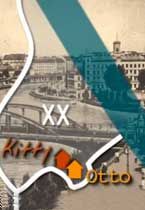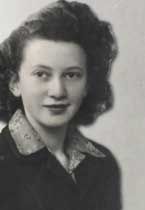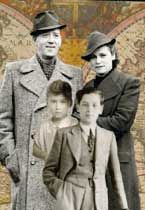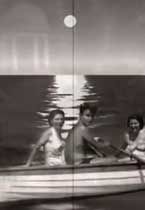Leo Luster
The remarkable story of Leo Luster, who grew up in Vienna’s second district in the 1930s.
Leo tells us about the thriving Jewish life in Vienna during the interwar years, which came to a halt with the annexation of Austria to Nazi Germany in March 1938. Eight months later, after the infamous Kristallnacht Pogroms against Jews, his father was arrested and lost his job while the Luster family was thrown out of their home. In September 1942 Leo and his parents were deported to Ghetto Theresienstadt. After two years Leo and his father were deported to Auschwitz-Birkenau. In January 1945 Leo was sent on a death march but could survive. He was freed by the Red Army and was able to find his mother again. In 1949 they moved to Israel where Leo met his future wife and found a new home.
Kurt Brodmann
Kurt Brodmann tells the story of his family: how his father Leopold, an actor, fell in love with Franzi Goldstaub, who was sitting in the audience. Franzi came from an Orthodox family and her parents would not let her marry an actor. Because he was so much in love, Leopold gave up his acting career and went into business.
Leopold and Franzi raised two sons. During the war, one son, Harry, fled to England; Kurt emigrated to Palestine, while their parents found refuge in Shanghai. There, Franzi opened a cafe and Leopold became an actor once again. After the war, the family was reunited in Vienna.
Max Uri
Max Uri was living the comfortable life of a Viennese Jewish lad when he fell for Frieda Haber. They met at a Jewish summer camp, then ran into each other the following summer on the Adriatic coast.
But the rise of the Nazis got in the way and Max, who had fled to Palestine in 1939, despaired of ever finding Frieda again. Until that day he was walking down a street in Tel Aviv...
Max and Frieda Uri died in August 2009.
Kitty Suschny
 Kitty and Otto Suschny both grew up in Vienna, only a couple of streets away from each other, but they never met while growing up. After the Reichspogromnacht in November 1938, both fled Austria for their lives; Kitty went to England, while Otto emigrated to Palestine. After the war, they returned to Vienna, desperate to find out what had happened to their parents. That´s where they met, and they never separated again...
Kitty and Otto Suschny both grew up in Vienna, only a couple of streets away from each other, but they never met while growing up. After the Reichspogromnacht in November 1938, both fled Austria for their lives; Kitty went to England, while Otto emigrated to Palestine. After the war, they returned to Vienna, desperate to find out what had happened to their parents. That´s where they met, and they never separated again...
Lilli Tauber
 Lilli Tauber grew up in a small town in Austria, Wiener Neustadt, where her parents tended the family store. Then came 9 November 1938--the pogrom known as Kristallnacht. Her father was arrested, Lilli was thrown out of school, and when her father was released, her parents got Lilli onto a kindertransport to England. From her refuge in Great Britain, Lilli wrote countless letters to her parents. And they wrote to her--not only from Vienna, but from a ghetto they were sent to in Poland. At war's end, Lilli returned to Vienna to look for them. Perhaps they too would return. But the letters Lilli found in a suitcase told a terrible, heartrending story. And then there were the pictures her father had sent back.
Lilli Tauber grew up in a small town in Austria, Wiener Neustadt, where her parents tended the family store. Then came 9 November 1938--the pogrom known as Kristallnacht. Her father was arrested, Lilli was thrown out of school, and when her father was released, her parents got Lilli onto a kindertransport to England. From her refuge in Great Britain, Lilli wrote countless letters to her parents. And they wrote to her--not only from Vienna, but from a ghetto they were sent to in Poland. At war's end, Lilli returned to Vienna to look for them. Perhaps they too would return. But the letters Lilli found in a suitcase told a terrible, heartrending story. And then there were the pictures her father had sent back.


